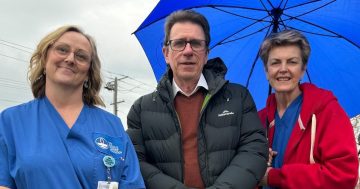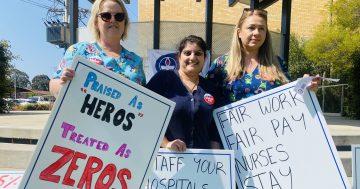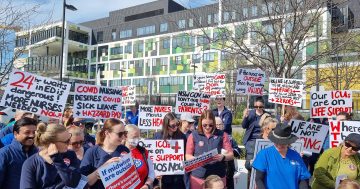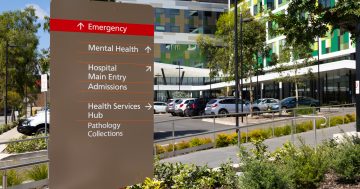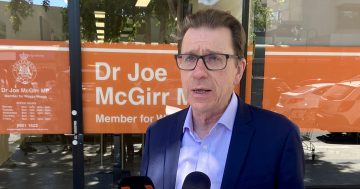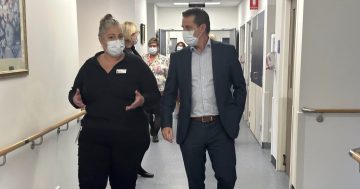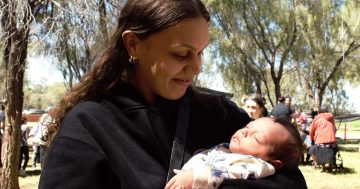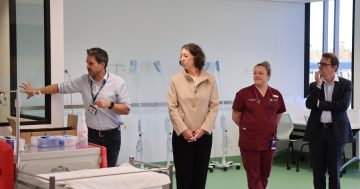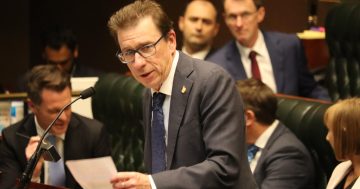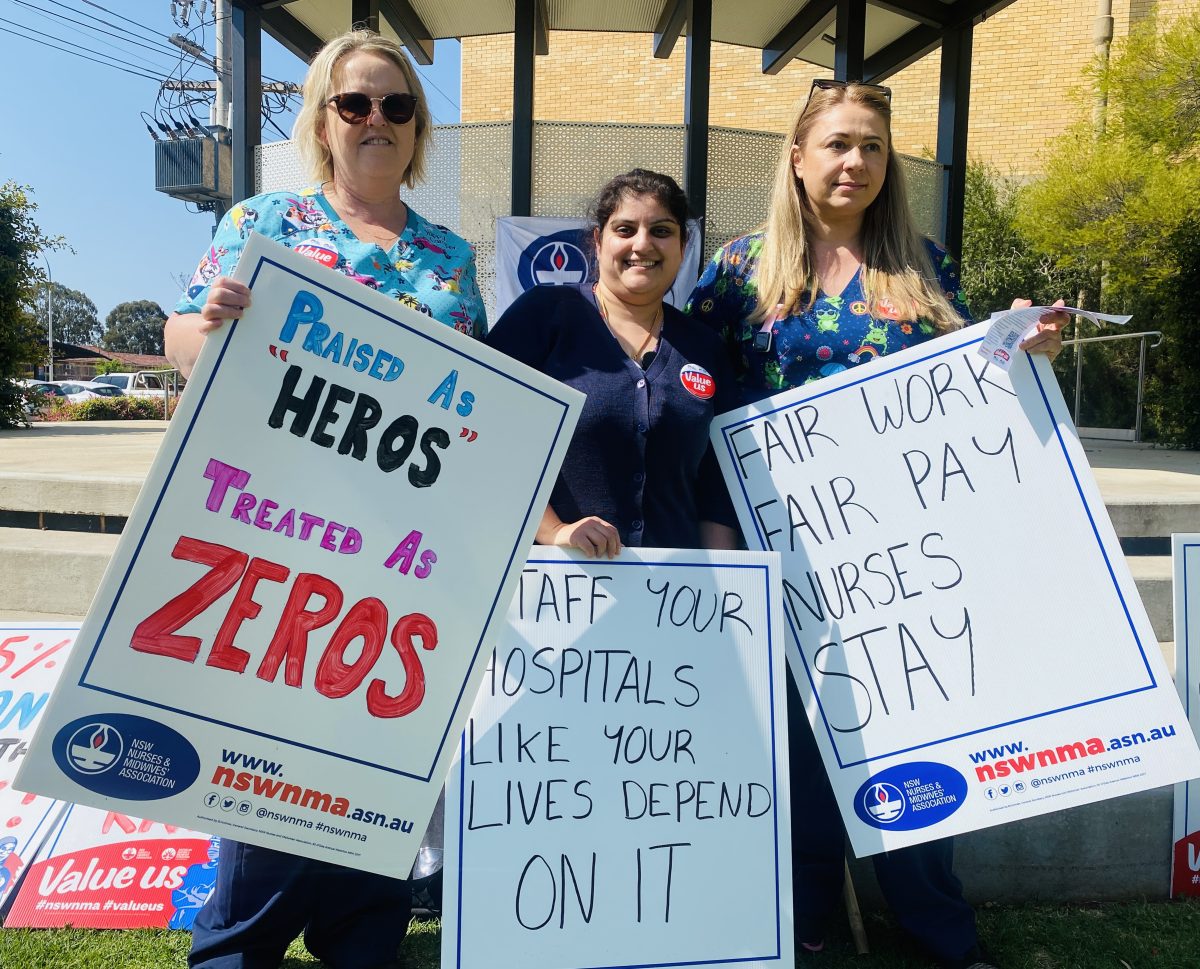
NSWNMA members Kylie Norris, Raj Janday and Olivia Brasington protested in Griffith this month. Photo: Oliver Jacques.
With ongoing shortages among maternity health workers in rural, regional and remote areas, the NSW Government is offering midwives a $20,000 sign-on bonus to relocate.
The trial is part of the NSW Government’s Rural Health Workforce Incentive Scheme and will run for the next six months in an attempt to boost the regional midwifery workforce.
Health Minister Ryan Park said workforce shortages outside metropolitan areas were a major challenge for all health jurisdictions and governments.
“This government is committed to attracting and retaining more healthcare workers to regional, rural and remote areas to ensure people living in these communities can receive high-quality, timely care close to home,” he said.
“I’ve said this countless times – worker shortages in our regional, rural and remote communities is the biggest single challenge facing our health system.”
The NSW Nurses and Midwives Association (NSWNMA) welcomed the sign-on bonus as a positive start, but not a solution.
NSWNMA has staged ongoing industrial action this year, calling for a 15 per cent pay increase that they say will bring pay rates in NSW in line with Victoria and Queensland.
Assistant General Secretary Michael Whaites said the Government has failed to listen to its workers.
“It’s a good short-term solution to recruit, however, the ongoing wages are insufficient to retain those midwives we do manage to recruit into the health system,” he said.
“We need a sustainable solution for our midwifery workforce in NSW and that’s pay parity with the other states and a correction to the gender inequity.
“Why the NSW government won’t listen to its largest female-dominated workforce on the issue of wages is beyond belief.”
The Industrial Relations Commission this week issued a recommendation that NSW Health and NSWNMA enter into four weeks of intensive discussions and suggested that NSW Health begin paying nurses the interim 3 per cent increase, back-paid to 1 July 2024 contingent on the industrial action ceasing.
Earlier this week, the government released its progress report on the response to the Upper House Inquiry into Rural and Regional Health confirming that 25 of the 44 recommendations have already been implemented.
Wagga MP Dr Joe McGirr chairs the select committee and said recruitment and shoring up primary care networks to take the pressure off larger regional centres remained a work in progress.
“There’s no question the government has made progress, and we’ve acknowledged that in the report that we’ve done, but 19 of the recommendations are still to be implemented and some of those are more than a year away, and they’re actually some of the most important ones around workforce and workforce shortages,” he said.
The one-off payment for midwives will be available to those relocating to an area designated under the Modified Monash Model (MMM) as level three to level seven facilities.
The MMM is used to define whether a location is metropolitan, rural, remote or very remote based on population size. Level one is a major city while seven is very remote. Wagga and Griffith are classified as level three while Hay is level five.
Mr Park said it was an important step to bolster numbers outside the cities.
“Midwives support the birth of almost 100,000 babies right across our state each year; regardless of where a family lives the importance of providing women, their partners and families with high quality, compassionate care cannot be underestimated,” he said.
“With this innovative trial, we are looking at new ways to fill critical vacancies in our regions so we can build a stronger and more supported regional health workforce.”
For more information, visit the NSW Health website.







